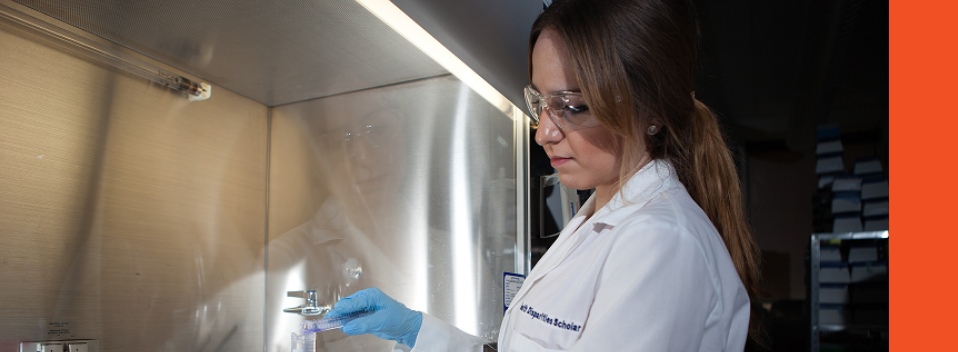
Health & Biomedical Sciences Faculty Publications
Document Type
Article
Publication Date
9-2024
Abstract
Parkinson’s disease (PD) is a neurological disorder that affects dopaminergic neurons. The lack of understanding of the underlying molecular mechanisms of PD pathology makes treating it a challenge. Several pieces of evidence support the protective role of enriched environment (EE) and exercise on dopaminergic neurons. The specific aspect(s) of neuroprotection after exposure to EE have not been identified. Therefore, we have investigated the protective role of EE on dopamine dysregulation and subsequent downregulation of DJ1 protein using in vitro and in vivo models of PD. Our study for the first time demonstrated that DJ1 expression has a direct correlation with dopamine downregulation in PD models and exposure to EE has a significant impact on improving the behavioral changes in PD mice. This research provides evidence that exercise in EE has a positive effect on PD without interfering with the current line of therapy.
Recommended Citation
Alcalá-Zúniga, D., Espinoza-Torres, E., Das, R. K., Vargas, M., Maldonado, O., Benavides, O., Manojkumar, A., de la Garza, R., Davila, N., Perez, I., Martinez, A. H., Roy, D., López-Juárez, A., Zarei, M. M., Baker, K. A., Gil, M., Rodrigo, H., de Erausquin, G. A., & Roy, U. (2024). Enriched Environment Contributes to the Recovery from Neurotoxin-Induced Parkinson's Disease Pathology. Molecular neurobiology, 61(9), 6734–6753. https://doi.org/10.1007/s12035-024-03951-w
Creative Commons License

This work is licensed under a Creative Commons Attribution 4.0 International License.
Publication Title
Molecular Neurobiology
DOI
10.1007/s12035-024-03951-w


Comments
Copyright © 2024, The Author(s).
This is an open access article distributed under the terms of the Creative Commons CC BY license, which permits unrestricted use, distribution, and reproduction in any medium, provided the original work is properly cited.